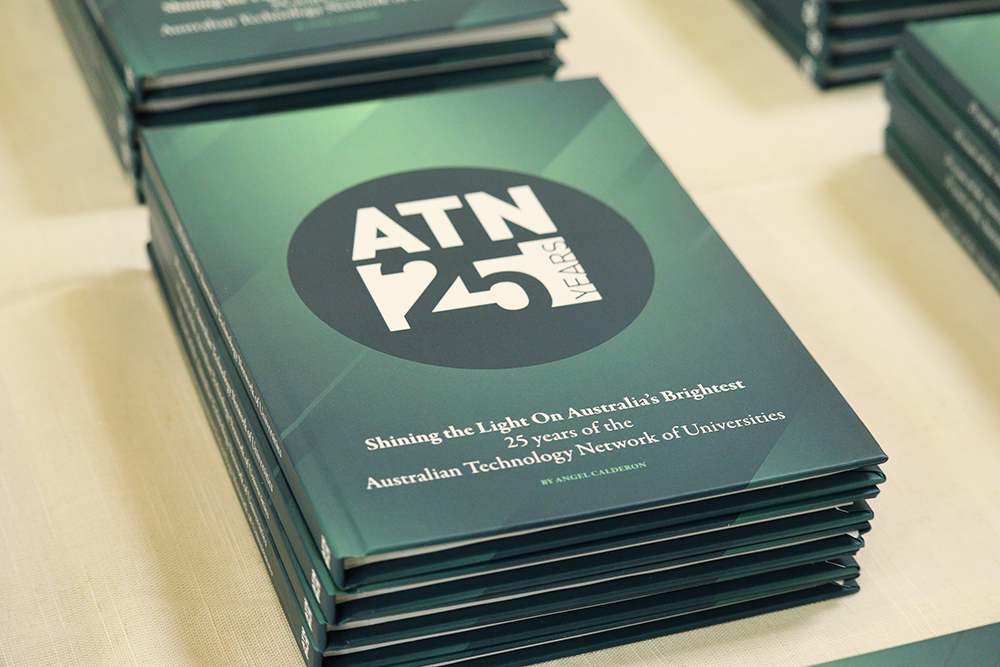This year, the Australian Technology Network of Universities (ATN) celebrates a significant milestone: 25 years of trusted sectoral leadership and sustained, impactful advocacy.
Strategic alliances such as the ATN have long been instrumental in the development of Australia’s world-class higher education system. The ATN was formed to pursue common goals and achieve strategic objectives such as influencing government policy.
Founding vision and objectives
The ATN group was formally established in February 1999 in Melbourne when the then five vice-chancellors of Australia’s leading technology universities (Curtin, QUT, RMIT, UniSA and UTS) signed a memorandum of understanding (MOU).
The MOU outlined two key objectives: each institution within the ATN seeks to compete effectively in a globally based education market while continuing to meet the needs of its local community.
Today, Deakin University and The University of Newcastle are part of the ATN group along with founding members Curtin, RMIT, UniSA and UTS. These universities are bound by an unwavering commitment to equity, excellence, student experience, successful outcomes and applied research – in which they tackle some of the biggest global challenges with bold, innovative solutions.
Milestones and achievements
ATN can count numerous significant accomplishments over the past 25 years of advocacy, including:
- Advancing gender equity: ATN pioneered initiatives to promote women to positions of power in academia.
- Promoting inclusivity and diversity: ATN has championed equity initiatives on fairness, inclusion, student diversity, and equality of access and outcomes, rather than seeking to maintain elite institutional status.
- Reforming research: ATN has been at the forefront of democratising research endeavours in Australia and the need to shift the balance of Australia’s research activity to applied research.
- Enhancing quality and evidence-based decisions: ATN has played a key role in raising quality standards and evidence-driven decision making across the sector.
- Addressing skills shortages: By actively collaborating with industry partners, civil society, and the government, ATN has worked to alleviate Australia’s skills shortages and address emerging needs.
- Championing sustainability: ATN has committed to integrating sustainability into teaching, research endeavours and operations, impacting local, regional and global communities.
Global impact and industry collaboration
The ATN public service, advocacy, and joint initiatives over this time have contributed to making Australia’s higher education outperform leading high-income countries in global knowledge production, impact, and global rankings.
The ATN has also become a trusted partner of industry by actively partnering with them to address labour skill shortage recognition, along with appreciation from government for advocacy in critical areas of national priorities and helping to solve a range of current and emerging needs.
A vision for continued success
Reflecting on the past 25 years, the ATN success can be attributed to the shared vision of its founding leaders, those who have led member institutions, and the dedicated work of its directorate.
An alliance can only succeed to the extent to which there is a vision and a commitment to make it a reality, and this has been a cornerstone of the ATN group of universities since day one.
From its humble beginnings, the group of ATN universities has risen to be global leaders in tertiary education, shining in their daily endeavours to be a trusted voice and make a difference to the sector, and will continue to do so as their overall societal impact continues to grow.
- Angel Calderon is Director, Strategic Insights at RMIT University. Angel has worked in institutional research and planning over the past 35 years in several Australian universities.


